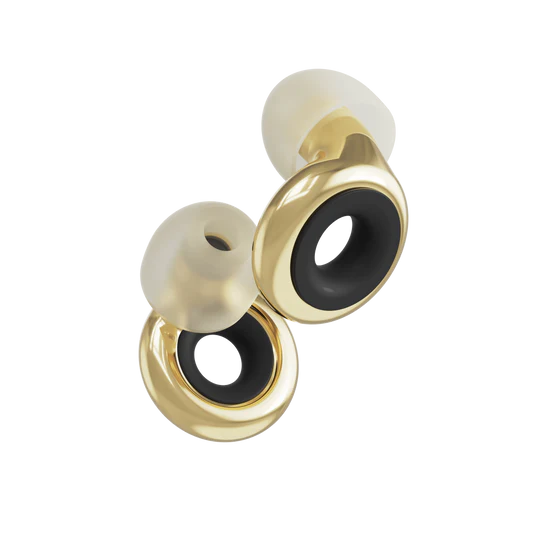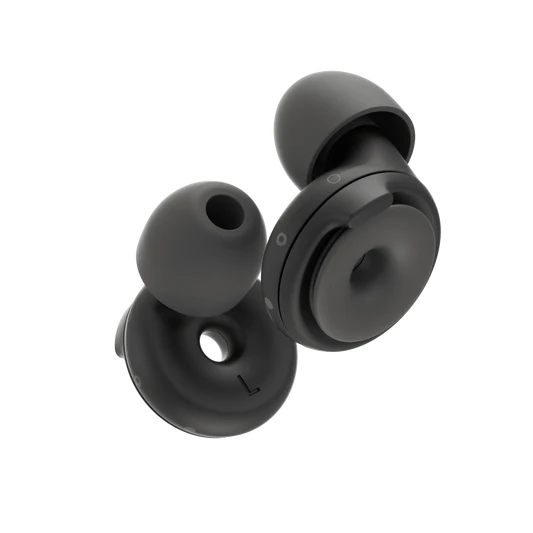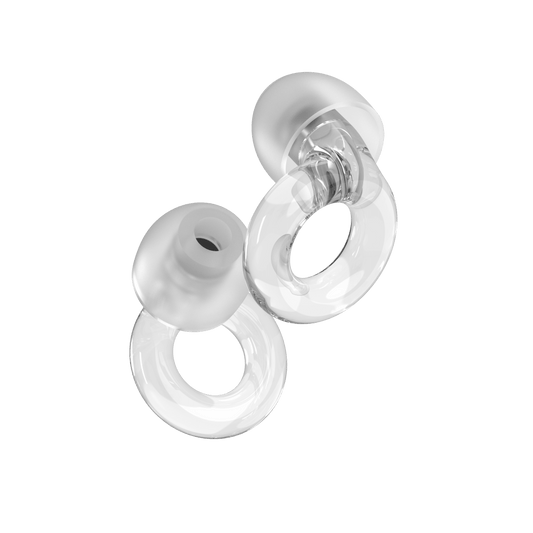Do you struggle to focus when there’s multiple conversations happening at once? Do you feel overwhelmed by background noise? Are loud music and flashing lights stressful for you? You could have sensory overload – in particular, noise-induced sensory overload.
When there’s more sensory information than your brain can handle, it can result in sensory overload – which can result in people feeling anxious, irritable, fatigued or make it difficult to focus.
Anyone can suffer from sensory overload, but it’s particularly common alongside certain other conditions, including ADHD, autism and anxiety. It can be difficult to deal with, but there are ways to reduce the overwhelm. We’ve gathered all the information you need to know about how to stop sensory overload, right here in one place.


What causes sensory overload?
Sensory overload is a type of noise sensitivity, and like any other kind of noise sensitivity, there are lots of potential causes for sensory overload, and triggers can vary from person to person. However, bright lights, crowded spaces and loud noises are common triggers. Auditory sensory overload can be triggered by loud sounds like alarms and sirens, as well as places with lots of background noise like shopping malls. It can also be triggered by repetitive or constant noises, like humming or buzzing, and unexpected sounds like a phone ringing out of the blue.
Sensory overload can be particularly common in people with autism. Indeed, sensory overload is so common with autism that it’s included as part of the diagnostic criteria for autism spectrum disorder (ASD). It’s also common in people with ADHD, as many ADHD-ers have difficulty filtering and processing sensory information, meaning that background noises may bother them more than other people.
But being overstimulated can affect anyone. It can also go hand-in-hand with other conditions like anxiety and PTSD, as well as fibromyalgia and multiple sclerosis.
The key symptoms of sensory overload
As with triggers, the symptoms of sensory overload vary from person to person. But some of the most common are:
- Difficulty concentrating
- Irritability
- Restlessness
- Discomfort
- Wanting to cover your ears or escape from the source of the noise
- Feeling stressed
- Feeling anxious
- A raised heart rate
- Sweaty palms
- Panic attacks
For some people, auditory overstimulation can be debilitating. For people who suffer severe symptoms, it can make them want to hide away from all potential sources of noise – which can have a big impact on their social life, health, and happiness. For others, the symptoms are more mild – but can still be difficult to live with.
Featured article


How to deal with sensory overload
Sensory overload can be difficult to deal with, but luckily, there are ways to manage it. Find out everything you need to know about how to deal with sensory overload in adults.
Earplugs for sensory overload
-
 Experience PlusSelling fast
Experience PlusSelling fastExperience Plus
Regular price €39.95Sale price €39.95 Regular priceUnit price perBest for music & events, focus, noise sensitivity, motorcycling
More sensory overload articles:

Calling all overstimulated parents: Reclaim your calm
Parent sensory overload: What it is, how to recognize it, and most importantly how to manage overstimulation.

Background noise driving you crazy? Here are our top 5 tips to get your conce...
Does background noise really affect concentration?

Parent sensory overload: Causes and how to take the edge off
Sensory overload can be triggered by a number of things including constant loud noises or excessive lighting. Learn m...


















